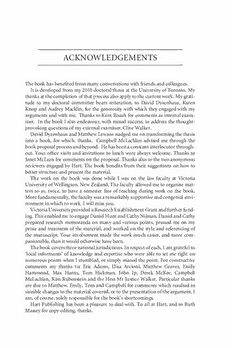
The Liberty of Non-Citizens: Indefinite Detention in Commonwealth Countries PDF
333 Pages·2014·1.854 MB·English
Most books are stored in the elastic cloud where traffic is expensive. For this reason, we have a limit on daily download.
Preview The Liberty of Non-Citizens: Indefinite Detention in Commonwealth Countries
Description:
The book addresses the legality of indefinite detention in countries including Australia, the United Kingdom and Canada, enabling a rich cross-fertilisation of experiences and discourses. The issue has arisen where a government is frustrated in its ability to remove a non-citizen subject to a removal order and employs a power to detain him until removal. The cases raise fundamental questions about the nature and extent of immigration powers, the legal position of non-citizens and counter-terrorism law and policy. More broadly, the judgments have become key reference points in discussions of constitutionalism, rights and a range of contemporary issues in public law. The book analyses the legal context, reasoning and implications of the case law on indefinite detention. It argues that the law of each jurisdiction contains ample resources to support a ruling that indefinite detention is illegal. It demonstrates that, taking into account variations in legal frameworks and doctrines, a judge’s response to indefinite detention is determined by his or her answer to the question whether a non-citizen, subject to a removal order, retains a right to liberty. It details how a judge’s answer flows through his or her adjudication on the scope of the relevant exception to liberty. The thesis on which the book is based won the 2010 Marks Medal from the University of Toronto Law Faculty for the best graduate thesis.
See more
The list of books you might like
Most books are stored in the elastic cloud where traffic is expensive. For this reason, we have a limit on daily download.
